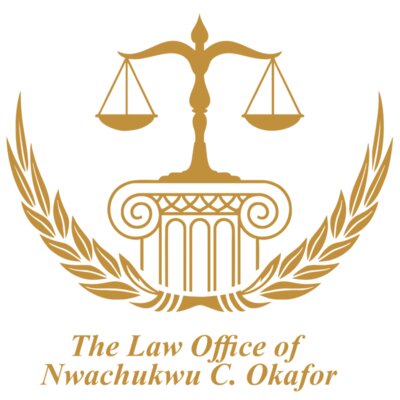Best Cannabis Law Lawyers in Nigeria
Share your needs with us, get contacted by law firms.
Free. Takes 2 min.
Or refine your search by selecting a city:
List of the best lawyers in Nigeria
About Cannabis Law in Nigeria
Cannabis, often referred to as marijuana, is a psychoactive drug that has been under much debate and scrutiny worldwide. In Nigeria, the cultivation, sale, and use of cannabis is illegal and strictly controlled under the National Drug Law Enforcement Agency (NDLEA) Act. Despite common global shifts towards legalization for medicinal or recreational purposes, Nigeria maintains a zero-tolerance stance on cannabis, and anyone caught engaging with the plant faces significant legal repercussions.
Why You May Need a Lawyer
Engaging with cannabis in Nigeria-whether through possession, distribution, cultivation, or consumption-exposes individuals to potential legal challenges. Common situations where legal assistance may be necessary include:
- Facing criminal charges for possession of cannabis.
- Arrested for the cultivation or distribution of cannabis.
- Having assets seized under suspicion of involvement in cannabis-related activities.
- Defending against drug trafficking charges which involve cannabis.
- Understanding local laws and penalties related to cannabis offenses.
Local Laws Overview
Nigeria's laws surrounding cannabis are primarily outlined in the NDLEA Act. Key aspects include:
- The cultivation, sale, and trafficking of cannabis are illegal under the Act.
- Cannabis is classified as a prohibited substance; hence possession is a criminal offence.
- Penalties for cannabis-related offenses can include long-term imprisonment, fines, or both.
- Individuals found with cannabis could be charged with trafficking, which carries severe penalties, including life imprisonment.
- Law enforcement agencies have the authority to conduct searches and seizures related to suspected cannabis activities.
Frequently Asked Questions
Is cannabis legal in Nigeria?
No, cannabis is illegal for both medicinal and recreational use in Nigeria.
What are the penalties for being caught with cannabis?
The penalties can range from imprisonment to heavy fines, depending on the amount and the intent (personal use versus distribution).
Can I use cannabis if it’s prescribed by a doctor for medical reasons?
There is currently no provision in Nigerian law that allows the use of cannabis for medicinal purposes.
What should I do if I am arrested for cannabis-related charges?
Seek immediate legal assistance from a lawyer who specializes in drug laws. It is crucial to understand your rights and the legal process.
Are there any reforms in place or discussions for the legalization of cannabis in Nigeria?
There is ongoing debate, but as of now, Nigeria maintains a strict prohibitionist policy on cannabis.
Can foreigners face different penalties compared to Nigerian citizens?
Foreigners may face deportation in addition to statutory penalties, but the law typically applies uniformly to all individuals.
What role does the NDLEA play in cannabis regulation?
The NDLEA is responsible for enforcing drug laws in Nigeria, including those related to cannabis. They conduct arrests, searches, and seizures.
Is growing hemp also illegal in Nigeria?
Yes, all forms of cannabis, including hemp, are considered illegal under Nigerian law.
Are there legal products that contain cannabis in Nigeria?
No, all products containing cannabis are illegal, including edibles, oils, and cosmetics.
How can a lawyer help me if I'm charged with a cannabis offense?
A lawyer can provide legal advice, represent you in court, negotiate plea bargains, and assist in understanding the nuances of cannabis laws in Nigeria.
Additional Resources
If you're seeking further information or assistance, these resources may be helpful:
- National Drug Law Enforcement Agency (NDLEA): The primary government body responsible for enforcing drug laws.
- Nigerian Bar Association (NBA): Can help you find accredited legal practitioners specialized in drug laws.
- Legal aid organizations: Often provide assistance or representation for individuals who cannot afford a private lawyer.
- Public Health Departments: Can provide education on the health implications of drug use, including cannabis.
Next Steps
If you find yourself in need of legal assistance regarding cannabis in Nigeria, consider the following steps:
- Contact a Lawyer: Reach out to an attorney specializing in drug-related offenses to discuss your situation.
- Gather Evidence: Collect all relevant documents, such as arrest records or communication related to charges, to present to your lawyer.
- Understand Your Rights: Familiarize yourself with your legal rights during an arrest and while facing charges.
- Explore Legal Aid: If affordability is an issue, reach out to organizations that offer legal aid services to see if you qualify for assistance.
- Stay Informed: Keep abreast of any legal developments or changes in the cannabis laws in Nigeria.
Lawzana helps you find the best lawyers and law firms in Nigeria through a curated and pre-screened list of qualified legal professionals. Our platform offers rankings and detailed profiles of attorneys and law firms, allowing you to compare based on practice areas, including Cannabis Law, experience, and client feedback.
Each profile includes a description of the firm's areas of practice, client reviews, team members and partners, year of establishment, spoken languages, office locations, contact information, social media presence, and any published articles or resources. Most firms on our platform speak English and are experienced in both local and international legal matters.
Get a quote from top-rated law firms in Nigeria — quickly, securely, and without unnecessary hassle.
Disclaimer:
The information provided on this page is for general informational purposes only and does not constitute legal advice. While we strive to ensure the accuracy and relevance of the content, legal information may change over time, and interpretations of the law can vary. You should always consult with a qualified legal professional for advice specific to your situation.
We disclaim all liability for actions taken or not taken based on the content of this page. If you believe any information is incorrect or outdated, please contact us, and we will review and update it where appropriate.
Browse cannabis law law firms by city in Nigeria
Refine your search by selecting a city.















